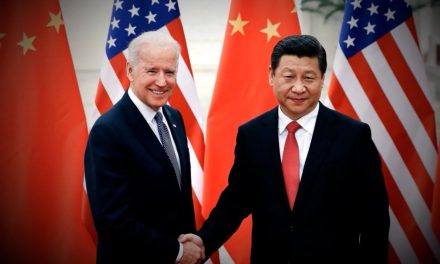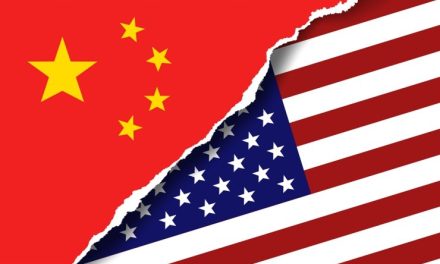By Bradley A. Thayer and Lianchao Han
The first meeting between U.S. Secretary of State Antony Blinken and National Security Advisor Jake Sullivan and their Chinese counterparts Yang Jiechi and Wang Yi in Anchorage was perilous for what occurred, including the Chinese officials’ insults against the United States, but also for the precedent the U.S. officials set with their passive response. In its aftermath, Americans would do well to consider what must be accomplished in future Sino-American meetings, including what the rules are going to be in the future. We suggest four.
First, do not fall for China’s diplomacy trap. The American side must clearly see China’s intent for this type of dialogue and question whether the United States actually needs to engage the Chinese officials in such fora.
Certainly, there is symbolism in a Sino-American meeting and some possibility of addressing differences. Past experience has taught us, however, that the Chinese Communist Party (CCP) has been habitually using it as a platform to propagandize against the United States and to stoke hypernationalism in China. If China has no intent to discuss substance, make compromises, or keep its promises, then the United States should refuse to offer it the platform and opportunity to put on a show.
As Malcolm Gladwell observed in Talking to Strangers, “the harder we work to get strangers to reveal themselves, the more elusive they become . . . Chamberlain would have been better off never meeting Hitler at all. He should have stayed home and read Mein Kampf.” This advice is particularly true at a Sino-American meeting where the Chinese violate the rules with impunity. Attending and taking it conveys American weakness to Chinese, American, and international audiences. If the U.S. side is unwilling to retaliate to punish the violation, then it would be far better not to have a face-to-face.
Second, enforce the rules. At the Anchorage meeting, the American side spoke for two minutes as agreed, but the Chinese side spoke for much longer—about 17 minutes. While this might be seen as posturing in front of the cameras before commencing two days of meetings, it also set a precedent that must not be rewarded. In the future, if the Chinese side violates the rules of the meeting, then the United States must protest, and if not heeded, walk out of the meeting.
Third, tolerate no diatribes, especially on human rights. The Chinese officials launched a verbal assault against the United States regarding racial relations and the condition of our democracy. Washington must never permit such abuse to occur without a throaty and muscular response. The United States cannot allow China, the world’s largest human rights abuser of its citizens, to lecture us on the treatment of our citizens.
Fourth, do not trust Chinese diplomats. They are instruments of the Communist Party, not China. Chinese diplomats like Yang Jiechi and Wang Yi have been managing the Sino-U.S. relations for Beijing for years, and have many friends in high places within the U.S. government. U.S. officials should read them accurately and should not rely on personal relationships to resolve problems. These diplomats are, above all else, the tools of the CCP-state apparatus, what Soviet and Chinese Communists termed Partiinost or Dangxing, respectively, where the party is above all else—including one’s own life and family.
Before the next meeting, the United States must recognize reality. The fact of life in international politics today is that the Sino-American relationship is broken because Beijing declared war in all but name by choosing to target and supplant the United States. The relationship is beyond repair and will only get worse as Beijing and Washington increasingly battle ever more sharply. As China expands its economic and military power, establishes military bases, gains diplomatic influence in world capitals and in intergovernmental organizations like the United Nations, and furthers its development of advanced information and genetic technologies, its interests by definition will collide with ours, and will more openly conflict with them.
The Chinese understand American politics and so comprehend that the Biden Administration will be under pressure to meet and demonstrate “progress” in the relationship as a foreign policy success of Biden’s presidency, and that pressure will only grow before key events on the American electoral clock next year and in 2024.
For future meetings, the U.S. side should provide a review and summary of China’s treaty and human rights violations, hold Beijing accountable for its genocide against Muslims in Xinjiang, illuminate its abuses of the world’s people and environment, and be the voice of the Chinese people who cannot criticize the misrule of the Chinese Communist Party.
This article first appeared in American Greatness on April 10, 2021























